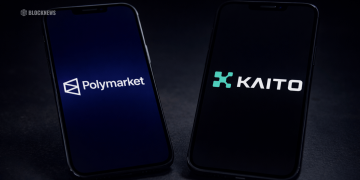- Dan Romero proposes a stablecoin app for U.S. freelancers in response to Venmo’s increased transaction fees.
- Financial analyst Ross Hendricks criticizes the new fee structure on X, igniting a discussion on cryptocurrency as a potential alternative.
- The debate intensifies with contrasting views on the practicality of using cryptocurrency for daily transactions.
In light of the recent transaction fee increases by Venmo, discussions among the U.S. freelancing community have shifted towards potential alternatives in cryptocurrency. Dan Romero, co-founder of Farcaster, suggested the development of a stablecoin payments application specifically designed for freelancers across the United States. This suggestion comes as freelancers, who often operate under the IRS Form 1099, seek more economical ways to handle their transactions without incurring high fees.
The fee hike by Venmo, a subsidiary of PayPal, was described by financial analyst Ross Hendricks as PayPal flipping “the monetization switch” for the mobile payment service, sparking significant community backlash. This sentiment was echoed across various discussions on the social platform X, where the narrative quickly pivoted to cryptocurrency as a viable solution. A user on X highlighted this by stating, “Crypto fixes this,” suggesting that digital currencies could offer a more cost-effective alternative.
The dialogue continued with questions about the accessibility and practicality of using cryptocurrencies for everyday transactions. Romero queried about a consumer app that facilitates free, instant crypto transfers to millions of users, indicating the need for more streamlined and accessible crypto services.
Coinbase CEO Comments
Brian Armstrong, CEO of Coinbase, joined the conversation, endorsing the USD Coin stablecoin on the Base platform as a potential solution attempting to bridge this gap. His response was lauded by Romero, who succinctly replied with “Based,” signaling approval.
However, not everyone shared this optimism. While some users pointed out the advantages of avoiding traditional fee structures like those imposed by PayPal, others, including Hendricks, remained skeptical. They questioned the feasibility of using platforms like Coinbase for regular transactions due to potential costs and the practicality of cryptocurrency in everyday financial operations.
The debate comes at a time when the cryptocurrency landscape is seeing renewed interest, marked by Coinbase’s announcement that XRP was trading again in New York after being delisted due to SEC scrutiny. This development, along with a court ruling favoring the non-security status of XRP’s secondary sales, adds another layer to the ongoing discussion about the role of digital currencies in mainstream finance and everyday transactions.














